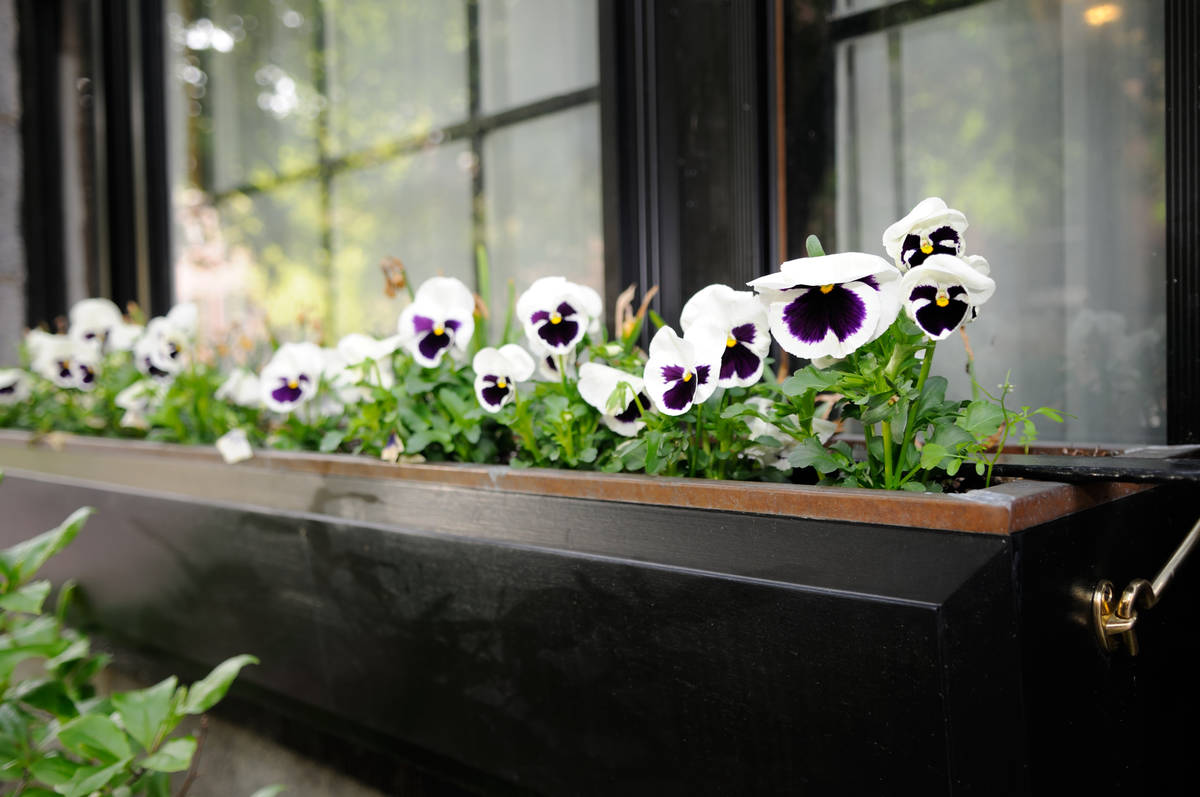IN SEASON: In Season answers Pahrump Readers’ garden questions
In Season takes readers’ questions and offers suggestions for a better harvest.
Q: How often should I water my vegetable garden in the winter?
A: The winter garden does not need nearly as much water as the garden in summer. If you are growing the typical winter offerings like greens, brassicas, and overwintering perennials such as strawberries, a good soaking twice a week is more than enough. In the winter I run the driplines in my vegetable garden twice a week for 10 to 15 minutes.
I would caution you to avoid watering during the afternoon and evening, especially when nighttime temperatures are to drop below freezing. If you are using driplines there will be residual water left inside after you run them. Water freezing inside your driplines may cause them to crack. When a freeze is expected, I recommend removing all hoses and driplines from your hose bibs to prevent broken pipes in your home.
Q: I’m pretty sure bats ate the lettuce and broccoli that I planted. Every time I plant seedlings, they are gone the next morning. How can I keep them out of my garden?
A: I can understand your frustration. It is really disappointing to put work into planting and caring for seedlings just to have them eaten just as soon as you put them out. While bats are nocturnal creatures, they are not the likely culprit in your garden. Most bats in the United States eat insects, which makes them beneficial to have around your garden.
It is more likely that the guilty party responsible for the destruction in your garden is rabbits or rats. Southern Nevada is in the midst of a rat problem currently and few are immune. The Paris Hotel and Casino in Las Vegas suffered a power outage in late October and the cause was determined to be rodents.
Keeping rabbits out of your garden is a bit easier than rats. You can build an enclosure or if you have raised beds, a simple cage made with PVC pipes and chicken wire can prevent rabbits from making a quick lunch of your hard work.
Rats are trickier and not a very easy issue to tackle. I am going through this myself right now as are many gardeners in the area. In fact, this topic is the most common that I have received questions about over the last several months.
Generally, I would recommend a range of natural options, such as building habitat to attract birds that hunt rats, but with the scope of the problem that we are in right now, my best suggestion is to call an exterminator.
Chances are, if you have rats in your garden, you may also have them in your home. In addition to tearing apart the insulation for nesting material, they also eat wiring and cause a great deal of damage if left unchecked. They also eat wiring inside vehicles and the damage can be quite costly. You may need to pay a bit of money to have an exterminator come out, but it is less than you would have to pay if the problem is not dealt with early on.
Q: I want to grow a garden, but I live in an apartment. What can I grow?
A: I remember my days of apartment living. I too longed for a garden. When I lived in a fourth-floor apartment in Germany I had window boxes filled to the brim with petunias and a spider plant in the stairwell that wrapped around the banister to the floor below. The good news is there are plenty of options that do well indoors or in pots on a balcony.
If you are looking to grow something edible, there are a variety of attractive wall gardens that you can purchase online. Most herbs grow well in wall gardens and can be kept small with consistent trimming. If hanging a wall garden, be sure to protect the wall behind it from water with a plastic backing. Some of my favorite herbs to grow in an indoor wall are basil, thyme, cilantro and dill.
Window boxes are another option, either indoors or out. I often use window boxes indoors to grow items that are out of season, such as lettuce in the summer. Again, you would want to be sure to protect the surface that the window box sits on from water damage. Look for a window box that has an enclosed base or catchment for water. Avoid overwatering your indoor plants by watering just enough to dampen the soil.
Window boxes can be kept in a window most of the time but should be removed if the night temperatures fall below freezing in winter. Foliage that comes into contact with the window might suffer frost damage. The reverse is true in summer, especially in south or west facing windows. Foliage coming in contact with the glass during a scorching 110-degree afternoon could burn. Even indoors, it is important to be mindful of the weather.
Terri Meehan is the Founder of Southern Nevada Gardening Association a regional group. She is a garden mentor and local farmer in Pahrump. Send questions or comments to her at sonvgarden@gmail.com

















